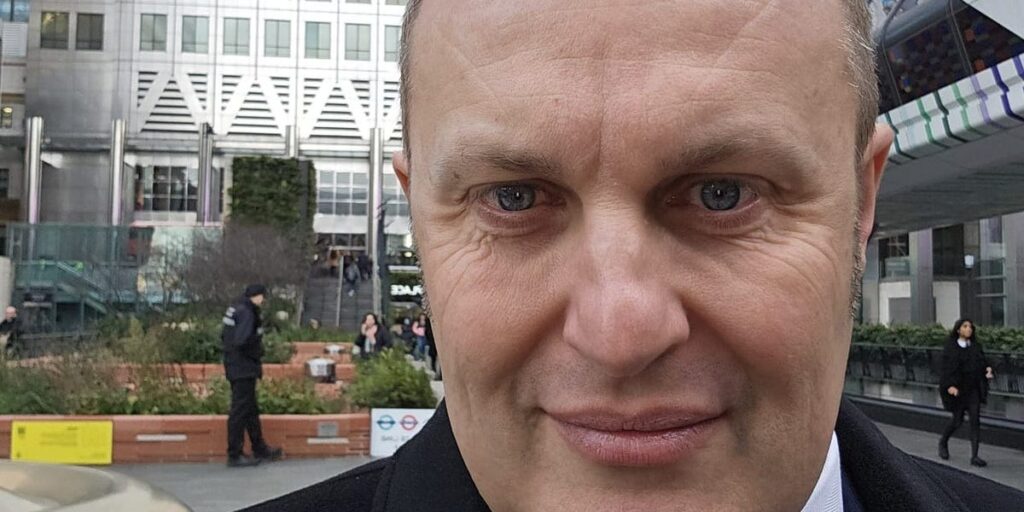This as-told-to essay is based on a conversation with James McQuillan, a telecoms consultant who appeared on the UK version of The Apprentice in 2009. The following has been edited for length and clarity.
A few years after I appeared on “The Apprentice” in 2009, I was in a procurement meeting. One of the guys recognized me from the show. Then, another guy at the table looked at me and said, “Oh, you’re not one of those, are you?”
This cemented in my head that I probably shouldn’t advertise that I was on “The Apprentice.”
I’d gone on the show hoping it would give me a leg up in my career. But I realized that if people had only heard of the show — not actually watched it — they were more likely to assume I was some narcissistic jerk.
I was nervous because I wanted a leg up, not the opposite of one.
Why I signed up
I hadn’t set out to be on reality TV.
I studied economics at university and didn’t do particularly well. I moved back to London and started looking for a job.
I was lucky to get into telecoms at the turn of the millennium — it gave me a solid education in the industry.
Later, while working at TalkTalk, my boss asked if I’d ever watched “The Apprentice.” He encouraged me to apply.
I saw it as an opportunity to supercharge my career opportunities. It could be good exposure to potential employers, and perhaps I’d get spotted for sales-type roles.
I didn’t expect Bill Gates to make me head of sales, but I thought it was a chance to demonstrate my rapport-building and sales skills.
By the time I got to the interviews, I had a sense of what they were looking for.
They lined you up and said, “Number one, step forward.” The candidate would say their credentials — MBAs from Harvard, property portfolios, Cambridge degrees, and whatever else.
I didn’t have anything half as impressive to say, but I was watching the interview panel’s reactions. That’s when the penny dropped: they weren’t looking for business acumen or academic brilliance. They were casting characters for a TV show.
I was sent through the door, and the rest were sent home. They were looking for someone with some business acumen, but more importantly, somebody the audience could engage with.
I went into it knowing it was heavily produced and all about the entertainment.
I came across as a bit goofy
If “The Apprentice” had been a straight business show — where people collaborated, had good ideas, and everything went smoothly — viewers would switch off. They needed stories and characters.
I found it uncomfortable to play along — it wasn’t sincere. But I was mindful this was a TV show, and if I didn’t perform, I’d be out.
On a personal level, I was shy going into filming. When I had to give a speech at my wedding, I’d been nervous for months beforehand. Part of me thought “The Apprentice” might help me get over that, which it did.
In the first couple of episodes, I came across as a bit goofy. I worried I’d damaged my career instead of accelerating it, and my wife was genuinely concerned I’d come across as unemployable.
Luckily, I turned it around and ended up getting quite far in the competition.
At work, I was getting kudos. My colleagues were supportive, and clients who normally didn’t answer were suddenly responding to my phone calls.
Strangers didn’t start reaching out until after the show aired.
It was mostly people asking me to invest in their businesses, which caught me off guard. At the time, I needed money as much as they did.
Recruiters did get in touch, too, but I think they mostly just wanted to chat about the show.
I thought it would leapfrog my career
Going on “The Apprentice” didn’t derail my career, but it didn’t accelerate in the way I’d expected.
I think I’ve followed the same path I would have if I hadn’t done the show. I work in consulting. My previous role was as a managing director of Lycamobile for the UK and Ireland — a senior telecoms position, the kind of job people usually reach in their mid-40s.
When I applied for “The Apprentice,” I thought it would take me beyond that, but it never did. I thought it would get my earnings up very quickly, and that never manifested.
I didn’t advertise having been on “The Apprentice,” and never put it on my CV or LinkedIn. I wasn’t ashamed, but I didn’t bring it up during job applications in case it served as a disadvantage.
I don’t regret signing up for the show
I don’t regret doing the show. It catapulted me into new emotions, relationships, and experiences I never would’ve had otherwise.
I thought it was going to be this wonderful peak for my business career, but it just wasn’t. If someone wanted to apply, I’d say go for it — you’ll get something out of it.
Just don’t expect it to make you the CEO of Facebook.
Do you have a story to share about hiding something from your past on your résumé? Contact this reporter at jzitser@businessinsider.com.
Read the full article here


